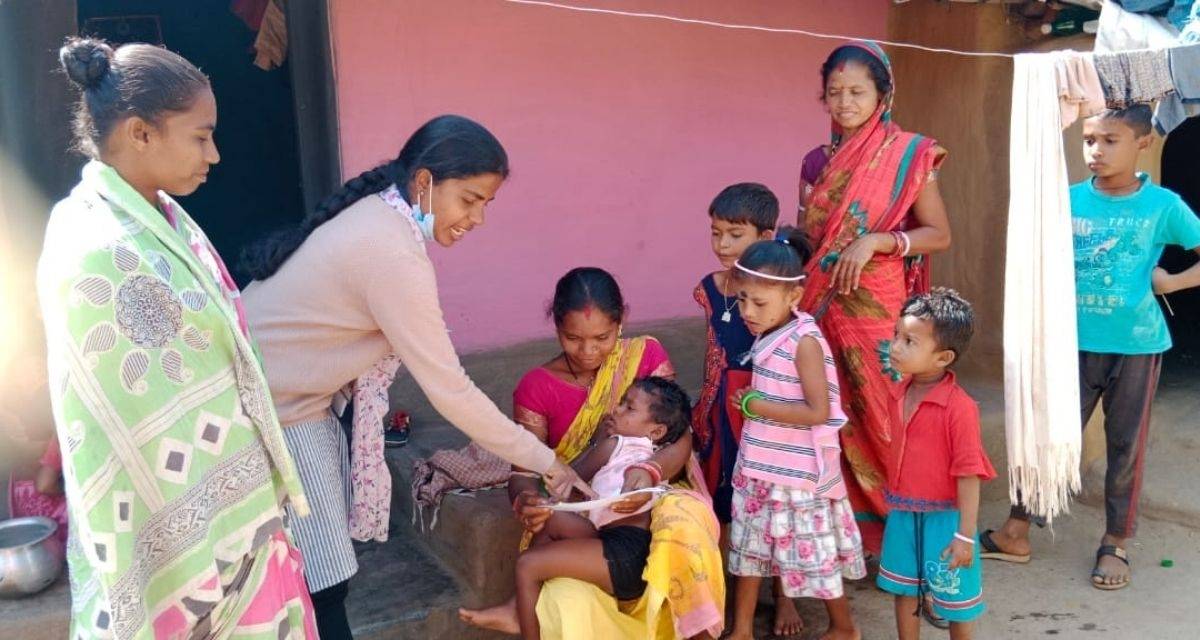The 32-year old woman from the indigenous Koya community is contesting the Zilla Parishad elections in the state’s panchayat polls, which begin on February 16…writes Tazeen Qureshy
A journalist for over half a decade, Jayanti Buruda from Odisha’s Malkangiri district has covered all sorts of grassroots news around health, women and development. But, the tables have turned now, and Jayanti herself is set to be on the other side of the news story. The 32-year old woman from the indigenous Koya community is contesting the Zilla Parishad elections in the state’s panchayat polls, which begin on February 16.
“As a journalist, I raised issues which concerned the public. As a social worker, I often forced the administration to sort it out. Now, I want to enter the system and bring change. I want to ensure schemes are implemented and people get the required support from the officials,” Buruda said.
A rebel is vindicated
Born into a family of 11 siblings, Buruda has local politics in her blood; her father, now retired, had also served as the Zilla Parishad chairman in the past. He was her sole support as she grew up facing discrimination for being a woman and an Adivasi. He wanted his girls to study, even when the objections came from within his family. Her elder sister, she said, is the first graduate from her community.
Buruda wanted to pursue higher education at Central University in Koraput, the closest option at 150 km away from her village, Serpalli. The daily commute of nearly three hours was a costly affair and her elder brothers also objected to a young girl staying away from home for too long.
“I ran away. There was no other option at that time. My friends helped me a lot those days, even paid for my admission. Since I couldn’t afford a separate house, my friend’s family took me in. I completed journalism and worked as an intern for some time before landing a job at a local, Odia-language Kalinga TV channel,” Buruda said.
Buruda knew she made the right choice, taking up journalism. She said she enjoyed the respect and responsibility that came with her role in society. “During my college days, I always felt I was not being taken seriously as I was a woman and came from a less-represented background. Joining the media industry helped me get people’s attention and get them to respond too.”
A lone, busy face from Malkangiri district, where Maoist rebels remain active, her work attracted national attention and in 2017, she became the first recipient of the Network of Women in Media, India fellowship. Using the grant, she purchased a laptop and a camera.
Problems to solutions
Buruda’s shift into local governance was organic. It seemed like the logical next step and her father too was a huge source of encouragement. But both father and daughter were adamant about one thing she would contest independently.
“I was approached by political parties but I didn’t want to join them. I didn’t want to be a remote control who will have to follow the lead of people sitting back in the capital city. I am a local girl and am aware of the issues. I can handle things well on my own,” she said.
Buruda is pitted against seven contenders for the Malkangiri zone-3 which has six panchayats under it. Though she might not have the power and money that her contenders have, she said, her electoral advantage is that she has seen knows the people and their struggles.
Her election symbol is a simple image of a boy and a girl. “Everyone loves children. So, people would be able to connect with this symbol easily,” she said. The symbol is also meaningful to Buruda because she does a lot of work with young children, especially girls in health and education under the ‘Bada Didi’ (elder sister) initiative.
Issues that matter
In the run-up to the elections, she campaigns every day for up to 12 hours. She is out on the roads by 8 a.m. every morning, usually accompanied by her father and two volunteers. She visits different villages and conducts meetings till afternoon and informs them about her plans, mainly focused on health and education.
Later in the afternoon, she goes on a door-to-door campaign, meeting mostly women voters and listening to their grievances. By evening, she conducts another round of meetings, before calling it a day.
“My main focus is to uplift the women from my community. I want them to have a voice of their own. Women have been a part of the electoral process for a long time now, but it is a known fact that they are dominated by their husbands or controlled by the higher-ups in the party. But I want women to stand for themselves. I have done that for myself and now I want others to follow suit.”
Buruda is hopeful of a good show, but she won’t be deterred even if the results don’t favour her. “People from my community don’t want me to give up writing and I will never give up social work. So win or not, I don’t think a lot will change. But I am hopeful for the people who are showing their affection towards me like I am their daughter or sister.”

